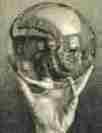Media, War & Conflict Fifth Anniversary Conference
11-12 April 2013
Royal Holloway, University of London
*** PROGRAMME AVAILABLE - CLICK HERE****
Media, War & Conflict’s fifth anniversary conference will be held on 11-12 April 2013 at Royal Holloway, University of London. The conference is open to scholars, journalists, military practitioners and activists from around the world, and features 88 papers from 25 countries.
Keynote speakers:
- Jamie Shea, NATO Deputy Assistant Secretary General for Emerging Security Challenges
- Barbie Zelizer, Raymond Williams Professor of Communication, University of Pennsylvania
- Cees Hamelink, Emeritus Professor of International Communication at the University of Amsterdam and Emeritus Professor for Media, Religion and Culture at the Vrije Universiteit in Amsterdam.
The journal was first published in April 2008, bringing together international scholars and journalists from the fields of political science, history, and communication, and military, NGO and journalist practitioners. The aim was to map the shifting arena of war, conflict and terrorism in an increasingly mediated age, and to explore cultural, political and technological transformations in media-military relations, journalistic practices and digital media, and their impact on policy, publics, and outcomes of warfare. The fifth anniversary conference offers the chance to showcase the best research in this field while also taking stock of how the field has developed and identifying the emerging challenges we face.
Papers cover a range of topics, including:
- Contemporary and historical war reporting
- Changing forms of credibility, legitimacy and authority
- Media ethics in the coverage of conflict
- The role of citizen-users and social media in conflict
- Terrorism, media and publics
- Intelligence operations and media
- Digital and cyber warfare
- Media and conflict prevention, peacekeeping and post-conflict scenarios
- Photo and video journalism in wartime
- War and conflict in popular culture
- The power of the visual and other modalities
- Commemoration and memorialisation of war and conflict
If you wish to attend the conference, please register here.
If you have any questions regarding registration, travel, visas, accommodation or other practical matters please contact Caroline Shedden at Caroline.Shedden@rhul.ac.uk. If you have any questions about presentations or the conference programme please contact Ben O’Loughlin atBen.OLoughlin@rhul.ac.uk.





